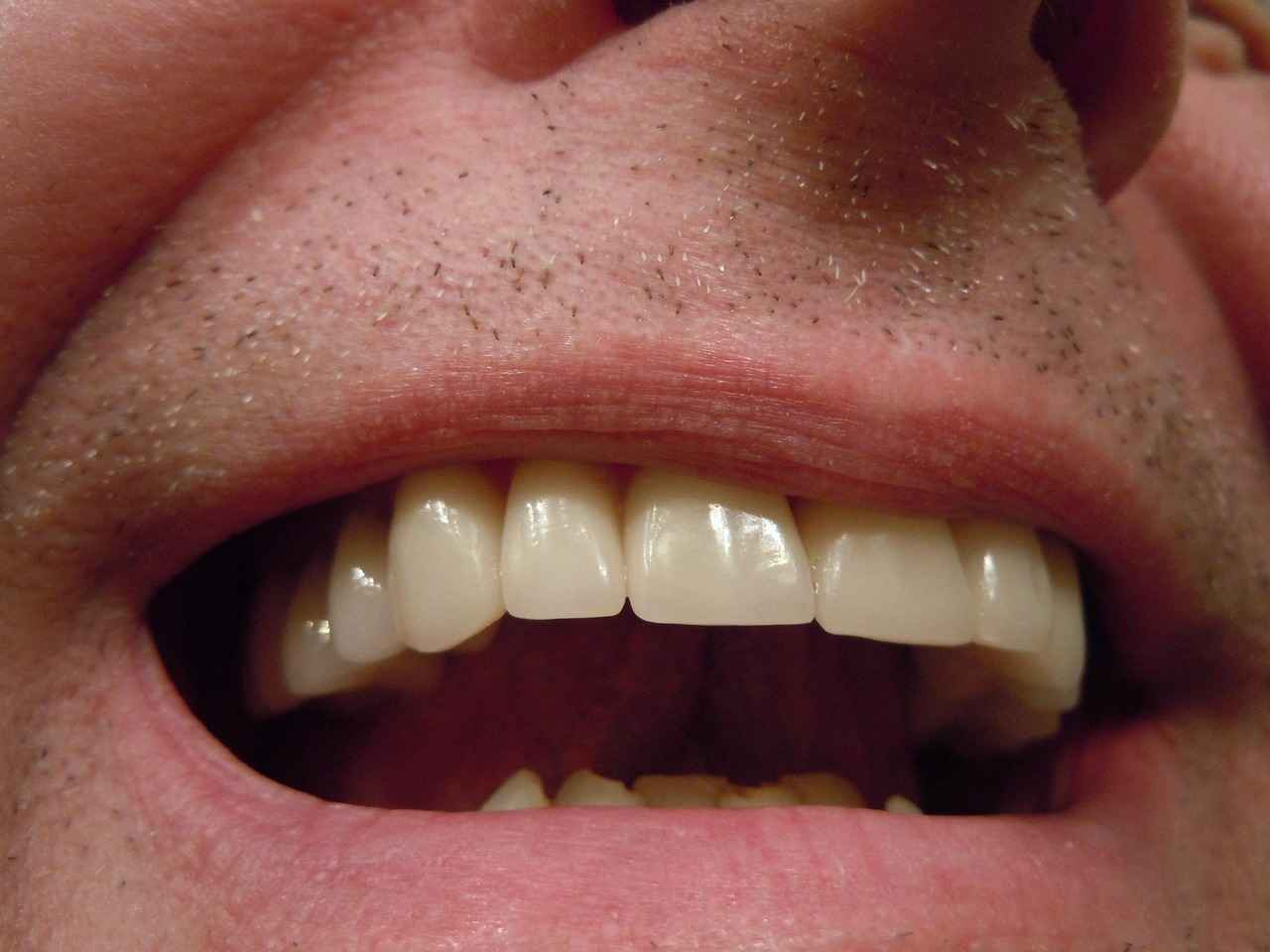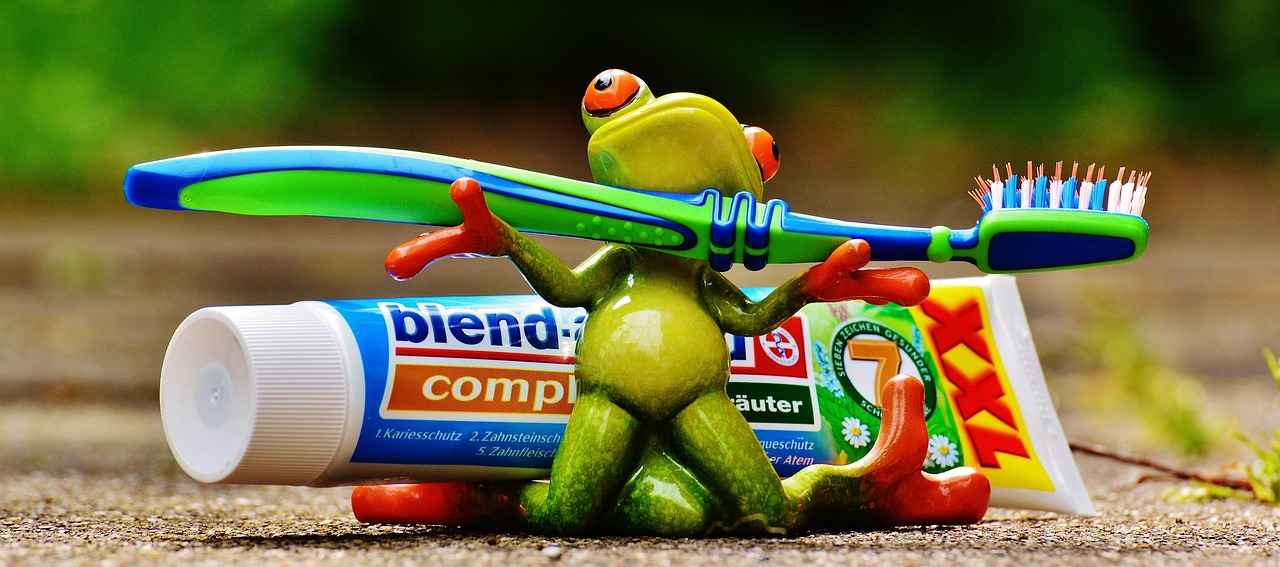In this article, we will delve into effective and natural methods for remineralizing teeth, enhancing their strength and health. We aim to provide practical tips and insights backed by expert knowledge and reliable sources.
What is Tooth Remineralization?
Tooth remineralization is a natural repair mechanism that helps restore minerals lost due to acid exposure and decay. Understanding this process is crucial for maintaining optimal dental health.
How Does Diet Impact Tooth Remineralization?
Your diet significantly influences the remineralization process. Consuming specific nutrients can enhance your teeth’s ability to recover from damage and maintain strong enamel. Here are some essential nutrients:
- Calcium: The Building Block of Teeth
- Phosphate: A Key Component
Essential Nutrients for Strong Teeth
Incorporating vitamins and minerals like calcium, phosphate, and vitamin D can significantly support tooth remineralization. These nutrients work together to strengthen enamel and prevent decay.
Calcium: The Building Block of Teeth
Calcium is vital for maintaining strong teeth and bones. Foods rich in calcium, such as dairy products, leafy greens, and fortified foods, should be included in your diet.
Phosphate: A Key Component
Phosphate works alongside calcium to promote remineralization. Sources include meat, fish, eggs, and nuts, which can help restore minerals lost from tooth enamel.
Hydration and Saliva Production
Staying hydrated is essential for optimal saliva production, which plays a crucial role in remineralizing teeth. Saliva helps neutralize acids and provides minerals that aid in enamel repair.
Natural Remedies for Remineralizing Teeth
Several natural remedies can effectively support the remineralization process. These methods are often easy to incorporate into your daily routine and can enhance overall dental health.
- Oil Pulling: An Ancient Practice
- Fluoride Alternatives: Are They Effective?
Oil Pulling: An Ancient Practice
Oil pulling involves swishing oil, such as coconut or sesame oil, in your mouth to reduce bacteria and promote oral health. This practice may also aid in remineralizing teeth over time.
Fluoride Alternatives: Are They Effective?
While fluoride is commonly used for tooth remineralization, natural alternatives like nano-hydroxyapatite have gained popularity. These alternatives aim to provide similar benefits without the potential downsides of fluoride.
Preventive Measures for Healthy Teeth
Preventing tooth decay and promoting remineralization involves adopting good oral hygiene practices. Consistent care can help maintain the strength and health of your teeth.
- Regular Brushing and Flossing: Essential for Preventing Plaque Buildup
- Limit Sugar and Acidic Foods: Protect Your Enamel
Regular Brushing and Flossing:
Maintaining a consistent oral hygiene routine, including brushing twice a day and flossing daily, is essential for preventing plaque buildup and promoting remineralization.
Limit Sugar and Acidic Foods:
Reducing the intake of sugary and acidic foods can significantly decrease the risk of enamel erosion. Opting for healthier snacks can help preserve your teeth’s mineral content.
When to Seek Professional Help
While natural methods can be effective, there are times when professional dental intervention is necessary. Understanding when to consult a dentist can help prevent further damage.
- Signs of Tooth Decay: Recognizing Early Symptoms
- Professional Remineralization Treatments: What Are Your Options?
Signs of Tooth Decay:
Recognizing early signs of tooth decay, such as sensitivity or discoloration, is crucial. If you notice these symptoms, it’s essential to seek professional advice promptly.
Professional Remineralization Treatments:
Dentists may offer treatments such as fluoride varnishes or prescription remineralizing agents for more severe cases. These options can provide additional support in the remineralization process.

What is Tooth Remineralization?
Understanding the process of tooth remineralization is crucial for maintaining dental health. This natural repair mechanism helps restore minerals lost due to acid exposure and decay. When our teeth are subjected to acidic environments, such as from sugary foods or beverages, they can lose essential minerals like calcium and phosphate. This loss can lead to weakened enamel and, eventually, cavities. Fortunately, the body has a remarkable ability to restore these minerals through a process known as remineralization.
Tooth remineralization is the process by which minerals are redeposited in the enamel of teeth after being removed by acids. It is a natural defense mechanism that occurs continuously, provided there are sufficient minerals available in the saliva and diet. The saliva plays a vital role in this process, as it is rich in minerals and helps neutralize acids in the mouth. When the balance between demineralization and remineralization is disrupted, tooth decay can occur.
Your diet significantly influences the remineralization process. Consuming specific nutrients can enhance your teeth’s ability to recover from damage and maintain strong enamel. Foods rich in calcium, phosphate, and vitamin D are particularly beneficial for supporting tooth health.
- Calcium: This mineral is the primary building block of teeth and bones. Foods such as dairy products, leafy greens, and fortified foods should be included in your diet.
- Phosphate: Working alongside calcium, phosphate is crucial for remineralization. Sources include meat, fish, eggs, and nuts, which can help restore lost minerals.
- Vitamin D: This vitamin enhances calcium absorption in the body, making it essential for strong teeth.
Staying hydrated is essential for optimal saliva production, which plays a crucial role in remineralizing teeth. Saliva helps neutralize acids and provides minerals that aid in enamel repair. Drinking plenty of water throughout the day can significantly benefit your oral health.
Several natural remedies can effectively support the remineralization process. These methods are often easy to incorporate into your daily routine and can enhance overall dental health.
Oil pulling involves swishing oil, such as coconut or sesame oil, in your mouth to reduce bacteria and promote oral health. This practice may also aid in remineralizing teeth over time by providing a protective layer against harmful bacteria.
While fluoride is commonly used for tooth remineralization, natural alternatives like nano-hydroxyapatite have gained popularity. These alternatives aim to provide similar benefits without the potential downsides of fluoride, making them a viable option for those seeking natural solutions.
Preventing tooth decay and promoting remineralization involves adopting good oral hygiene practices. Consistent care can help maintain the strength and health of your teeth.
Maintaining a consistent oral hygiene routine, including brushing twice a day and flossing daily, is essential for preventing plaque buildup and promoting remineralization.
Reducing the intake of sugary and acidic foods can significantly decrease the risk of enamel erosion. Opting for healthier snacks can help preserve your teeth’s mineral content, ensuring a stronger, healthier smile.
While natural methods can be effective, there are times when professional dental intervention is necessary. Understanding when to consult a dentist can help prevent further damage.
Recognizing early signs of tooth decay, such as sensitivity or discoloration, is crucial. If you notice these symptoms, it’s essential to seek professional advice promptly.
Dentists may offer treatments such as fluoride varnishes or prescription remineralizing agents for more severe cases. These options can provide additional support in the remineralization process, ensuring your teeth remain healthy and strong.

How Does Diet Impact Tooth Remineralization?
Your diet plays a crucial role in the process of tooth remineralization, significantly influencing the health and strength of your enamel. By consuming specific nutrients, you can enhance your teeth’s ability to recover from damage and maintain their structural integrity. Understanding how diet impacts remineralization is essential for anyone looking to improve their oral health.
Tooth remineralization relies on a variety of essential nutrients that work synergistically to restore minerals lost from enamel. Here are some key nutrients to focus on:
- Calcium: This mineral is fundamental for the development and maintenance of strong teeth. Foods rich in calcium include dairy products, leafy greens, and fortified plant-based alternatives.
- Phosphate: Working in tandem with calcium, phosphate is vital for enamel strength. You can find phosphate in foods like meat, fish, eggs, and nuts.
- Vitamin D: This vitamin is crucial for calcium absorption. Sunlight exposure and foods like fatty fish, egg yolks, and fortified products can help you meet your vitamin D needs.
- Vitamin K2: Essential for bone health, vitamin K2 also helps in the remineralization process. Sources include fermented foods and certain cheeses.
Optimizing your diet for remineralization involves not just focusing on specific nutrients but also adopting healthy eating habits:
- Incorporate Whole Foods: Prioritize whole, unprocessed foods, which are generally higher in essential nutrients. Fresh fruits, vegetables, whole grains, and lean proteins should form the basis of your diet.
- Stay Hydrated: Drinking plenty of water is vital for saliva production, which plays a key role in neutralizing acids and providing minerals necessary for enamel repair.
- Limit Sugary and Acidic Foods: Reducing your intake of sugar and acidic foods can minimize enamel erosion, allowing your teeth the chance to remineralize effectively.
While it’s best to obtain nutrients from whole foods, supplements can be beneficial if you’re unable to meet your nutritional needs through diet alone. Calcium and vitamin D supplements are commonly recommended for individuals at risk of deficiency. However, it’s important to consult with a healthcare professional before starting any supplement regimen.
In addition to a nutrient-rich diet, several natural practices can support the remineralization process:
- Oil Pulling: This ancient practice involves swishing oil in your mouth to reduce harmful bacteria and promote oral health, potentially aiding remineralization.
- Chewing Sugar-Free Gum: Chewing sugar-free gum can stimulate saliva production, which helps wash away food particles and neutralize acids.
By making informed dietary choices and incorporating healthy habits, you can significantly impact the remineralization of your teeth. Remember, maintaining a balanced diet rich in essential nutrients is key to achieving and preserving strong, healthy enamel.
Essential Nutrients for Strong Teeth
Maintaining strong and healthy teeth is vital for overall well-being. One of the most effective ways to support tooth health is by incorporating essential nutrients into your diet. This section will delve into the key vitamins and minerals that play a crucial role in the remineralization process, helping to strengthen enamel and prevent decay.
The health of your teeth is directly influenced by the nutrients you consume. A balanced diet rich in vitamins and minerals not only aids in the remineralization of enamel but also helps in maintaining overall oral health. Understanding which nutrients are essential can empower you to make informed dietary choices.
Calcium is perhaps the most recognized nutrient when it comes to maintaining strong teeth and bones. It plays a pivotal role in the structure and strength of tooth enamel. Foods rich in calcium include:
- Dairy products (milk, cheese, yogurt)
- Leafy greens (kale, broccoli)
- Fortified foods (certain cereals and plant-based milks)
Incorporating these foods into your diet can help ensure that your body has the necessary calcium to support tooth remineralization.
Phosphate works in conjunction with calcium to promote remineralization. It helps to restore the minerals lost from tooth enamel, making it essential for maintaining dental health. Rich sources of phosphate include:
- Meat (chicken, beef, pork)
- Fish (salmon, mackerel)
- Nuts and seeds (almonds, sunflower seeds)
Including these foods in your meals can enhance the effectiveness of calcium in strengthening your teeth.
Vitamin D plays a crucial role in the body’s ability to absorb calcium and phosphate. Without adequate vitamin D, even the best dietary sources of calcium and phosphate may not be effectively utilized. Good sources of vitamin D include:
- Fatty fish (tuna, sardines)
- Egg yolks
- Fortified foods (milk, orange juice)
Regular sun exposure also helps the body produce vitamin D naturally, making it an essential component of your dental health strategy.
Magnesium is often overlooked but is essential for maintaining strong teeth. It aids in the formation of enamel and supports the functions of calcium and vitamin D. Foods rich in magnesium include:
- Whole grains (brown rice, quinoa)
- Legumes (beans, lentils)
- Dark chocolate
Incorporating magnesium-rich foods can further enhance your teeth’s remineralization process.
Vitamin K2 is vital for the transportation of calcium to the bones and teeth. It works synergistically with vitamin D to ensure that calcium is directed to the right places in the body. Foods high in vitamin K2 include:
- Fermented foods (natto, sauerkraut)
- Animal products (cheese, egg yolks)
Including these foods in your diet can help optimize calcium utilization, further supporting tooth strength.
In summary, a diet rich in calcium, phosphate, vitamin D, magnesium, and vitamin K2 is essential for promoting the remineralization of teeth. By focusing on these nutrients, you can help maintain strong, healthy teeth and reduce the risk of decay.
Calcium: The Building Block of Teeth
Calcium is often referred to as the building block of teeth, and for good reason. This essential mineral plays a pivotal role in maintaining not only strong teeth but also robust bones. Adequate calcium intake is crucial for the development and maintenance of healthy enamel, which is the outer protective layer of your teeth. Without sufficient calcium, teeth can become weak and more susceptible to decay.
Calcium is a key component of your teeth’s structure. It helps in the formation and maintenance of tooth enamel and is vital for the overall strength of your teeth. When your body lacks calcium, it can lead to a decrease in bone density and tooth strength, making teeth more vulnerable to cavities and fractures.
To support your dental health, it is important to include a variety of calcium-rich foods in your diet. Here are some excellent sources:
- Dairy Products: Milk, yogurt, and cheese are some of the best sources of calcium.
- Leafy Greens: Vegetables like kale, broccoli, and spinach are not only nutritious but also rich in calcium.
- Fortified Foods: Many cereals, plant-based milks, and juices are fortified with calcium, making them a great addition to your diet.
- Fish: Canned fish with bones, such as sardines and salmon, are excellent sources of calcium.
The recommended daily intake of calcium varies by age and gender. Generally, adults should aim for about 1,000 mg of calcium per day, while women over 50 and men over 70 may need up to 1,200 mg. Meeting these requirements is essential for maintaining healthy teeth and bones.
While calcium is crucial, it is equally important to ensure that your body can absorb it effectively. Vitamin D plays a vital role in calcium absorption. Without adequate vitamin D, your body may struggle to utilize calcium, even if you consume enough through your diet. Foods rich in vitamin D include fatty fish, egg yolks, and fortified products.
Recognizing the signs of calcium deficiency can help you take action before serious dental issues arise. Common symptoms include:
- Tooth sensitivity
- Frequent cavities
- Weak or brittle teeth
- Bone pain or fractures
For some individuals, particularly those who are lactose intolerant or follow a vegan diet, obtaining enough calcium through food alone can be challenging. In such cases, calcium supplements may be beneficial. However, it is essential to consult with a healthcare professional before starting any supplementation to determine the right dosage and avoid potential side effects.
In summary, calcium is a fundamental component of dental health. By incorporating a variety of calcium-rich foods into your diet and ensuring proper vitamin D levels, you can support the remineralization of your teeth and maintain a healthy smile. Remember, a balanced diet not only strengthens your teeth but also contributes to your overall well-being.
Phosphate: A Key Component
Phosphate plays a crucial role in maintaining dental health, particularly in the process of remineralization. This essential mineral works in tandem with calcium to strengthen tooth enamel, making it vital for preventing tooth decay and promoting overall oral health. Understanding the significance of phosphate can help individuals make informed dietary choices that support their dental well-being.
Phosphate is a mineral that is naturally found in various foods and is a key component of bones and teeth. It contributes to the formation of hydroxyapatite, the mineral complex that makes up tooth enamel. When teeth are exposed to acids from food and bacteria, they can lose minerals like phosphate and calcium, leading to weakened enamel and an increased risk of cavities. Therefore, replenishing these minerals is essential for maintaining strong and healthy teeth.
To ensure adequate phosphate intake, it’s important to include a variety of foods in your diet. Some of the best dietary sources of phosphate include:
- Meat: Beef, chicken, and pork are excellent sources of phosphate.
- Fish: Fatty fish like salmon and tuna provide essential nutrients, including phosphate.
- Eggs: A versatile food, eggs are not only rich in protein but also contain significant amounts of phosphate.
- Nuts and Seeds: Almonds, sunflower seeds, and pumpkin seeds are great plant-based sources of phosphate.
- Dairy Products: Milk, yogurt, and cheese are rich in both calcium and phosphate, making them ideal for dental health.
Calcium and phosphate work synergistically to promote remineralization. When enamel is demineralized, these minerals can help rebuild it. Calcium provides the structural foundation, while phosphate enhances the mineralization process. Together, they help restore the lost minerals, leading to stronger and healthier teeth.
A deficiency in phosphate can lead to various dental problems, including weakened enamel and increased susceptibility to cavities. Individuals who do not consume enough phosphate-rich foods may find their teeth more vulnerable to decay. It’s crucial to recognize the signs of deficiency, which can include:
- Increased tooth sensitivity.
- Frequent cavities.
- Discoloration of teeth.
To maximize the benefits of phosphate, it’s essential to pair it with other nutrients. For instance, vitamin D plays a significant role in enhancing calcium and phosphate absorption in the body. Foods rich in vitamin D, such as fatty fish, fortified dairy products, and egg yolks, should be included in your diet to support overall mineral absorption.
Incorporating phosphate-rich foods into your daily meals can be simple and enjoyable. Here are some practical tips:
- Start your day with a breakfast that includes eggs or yogurt.
- Snack on nuts or seeds instead of sugary treats.
- Add fish to your weekly meal plan, aiming for at least two servings per week.
- Include a variety of meats in your diet to diversify your nutrient intake.
In conclusion, phosphate is an essential mineral that plays a vital role in remineralizing teeth and maintaining dental health. By understanding its importance and ensuring adequate intake through a balanced diet, individuals can significantly enhance their oral health and prevent dental issues.
Hydration and Saliva Production
Maintaining proper hydration is not just essential for overall health; it is also crucial for optimal saliva production. Saliva plays a vital role in oral health, particularly in the process of remineralizing teeth. This natural fluid is responsible for neutralizing acids produced by bacteria in the mouth, which can lead to tooth decay if left unchecked.
Saliva contains important minerals, such as calcium and phosphate, which are essential for repairing and strengthening tooth enamel. When we are adequately hydrated, our body can produce enough saliva to perform these protective functions effectively. Conversely, dehydration can lead to a decrease in saliva production, resulting in dry mouth, also known as xerostomia.
Dry mouth can create an environment conducive to tooth decay and gum disease, as the lack of saliva means reduced neutralization of harmful acids and less mineral replenishment for the teeth. Therefore, ensuring that you drink enough water throughout the day is vital for maintaining a healthy mouth.
Moreover, hydration aids in the digestion process, helping to break down food particles and wash away debris. This action not only keeps the mouth clean but also reduces the risk of plaque buildup, which can lead to cavities and other dental issues.
To maintain optimal hydration levels, consider the following tips:
- Drink plenty of water: Aim for at least 8 glasses of water daily, adjusting for factors like activity level and climate.
- Limit dehydrating beverages: Reduce the intake of caffeinated and alcoholic drinks, as these can contribute to dehydration.
- Eat water-rich foods: Incorporate fruits and vegetables with high water content, such as cucumbers, oranges, and watermelon, into your diet.
- Monitor your body: Pay attention to signs of dehydration, such as dry skin, fatigue, or dark urine, and take action to rehydrate.
In addition to hydration, certain lifestyle choices can further enhance saliva production. Chewing sugar-free gum can stimulate saliva flow, while avoiding tobacco products can prevent dry mouth. Regular dental check-ups are also essential to monitor your oral health and address any potential issues early on.
Ultimately, staying hydrated is a simple yet effective way to support your oral health. By ensuring that your body has enough fluids, you are not only promoting saliva production but also creating a healthier environment for your teeth and gums. This practice, combined with a balanced diet rich in essential nutrients, can significantly contribute to the remineralization process and overall dental well-being.

Natural Remedies for Remineralizing Teeth
Maintaining strong and healthy teeth is essential for overall well-being. One effective way to achieve this is through remineralization, a natural process that helps restore minerals to the teeth. In this section, we will explore various natural remedies that can support the remineralization process, making it easier for you to incorporate them into your daily routine.
Several natural remedies can effectively support the remineralization process. These methods are often easy to incorporate into your daily routine and can enhance overall dental health.
- Oil Pulling: This ancient practice involves swishing a tablespoon of oil, such as coconut or sesame oil, in your mouth for about 15-20 minutes. Oil pulling helps reduce harmful bacteria and plaque, contributing to better oral health and potentially aiding in the remineralization of teeth.
- Homemade Remineralizing Toothpaste: You can create a natural toothpaste using baking soda, coconut oil, and essential oils like peppermint. This mixture can help neutralize acids in the mouth and provide minerals essential for tooth strength.
- Bone Broth: Rich in minerals like calcium and phosphorus, bone broth is an excellent addition to your diet. Consuming it regularly can help provide the necessary nutrients for remineralization.
- Green Tea: Known for its antioxidant properties, green tea also contains compounds that can help reduce bacteria in the mouth. Drinking green tea can promote oral health and may support the remineralization process.
- Dietary Adjustments: Incorporating foods high in calcium, phosphorus, and magnesium is crucial. Foods such as leafy greens, nuts, seeds, and dairy products can significantly enhance your teeth’s ability to remineralize. Avoiding sugary and acidic foods is equally important, as they can erode enamel and hinder the remineralization process.
- Chewing Sugar-Free Gum: Chewing gum that contains xylitol can stimulate saliva production, which is vital for remineralization. Saliva helps neutralize acids and provides minerals that aid in enamel repair.
The effectiveness of these natural remedies lies in their ability to provide essential nutrients and create an environment conducive to remineralization. For instance, oil pulling not only reduces harmful bacteria but also promotes saliva production, which is crucial for enamel repair. Similarly, a diet rich in vital nutrients supports the body’s natural ability to restore minerals lost due to acid exposure.
Integrating these remedies into your daily routine can be simple and enjoyable. Here are some practical tips:
- Start your day with oil pulling before brushing your teeth.
- Replace your regular toothpaste with a homemade remineralizing version.
- Include bone broth in your meals at least a few times a week.
- Opt for green tea instead of sugary beverages.
- Carry sugar-free gum with you to chew after meals.
By adopting these natural remedies, you can significantly enhance your dental health and support the remineralization process. Remember that consistency is key; incorporating these methods into your daily routine will yield the best results over time.
Oil Pulling: An Ancient Practice
Oil pulling is an ancient Ayurvedic practice that has gained popularity in recent years for its potential benefits in promoting oral health. This technique involves swishing oil, typically coconut or sesame oil, in the mouth for a period of time, usually ranging from 10 to 20 minutes. The primary aim is to reduce harmful bacteria, improve oral hygiene, and enhance overall dental health.
Many proponents of oil pulling claim that it offers a variety of oral health benefits. Some of the most notable include:
- Reduction of Bacteria: Oil pulling may help eliminate harmful bacteria in the mouth, thereby reducing plaque buildup and the risk of gingivitis.
- Fresh Breath: The practice can lead to fresher breath by removing food particles and bacteria that contribute to bad odors.
- Whiter Teeth: Some users report a brighter smile after consistent oil pulling, as it may help lift stains from the teeth.
- Improved Gums: Regular oil pulling can promote healthier gums by reducing inflammation and supporting overall gum health.
The mechanism behind oil pulling lies in the emulsification of oil. When swished in the mouth, the oil binds to bacteria and other debris, allowing them to be expelled when the oil is spit out. This process not only cleanses the mouth but also stimulates saliva production, which is essential for remineralizing teeth.
While coconut and sesame oil are the most commonly used, other oils can also be effective. Here are some popular options:
- Coconut Oil: Known for its antimicrobial properties, coconut oil is rich in lauric acid, making it a favorite among oil pullers.
- Sesame Oil: A traditional choice in Ayurvedic practices, sesame oil is believed to help strengthen gums and teeth.
- Sunflower Oil: This oil is another alternative that is often recommended for its neutral flavor and health benefits.
To maximize the benefits of oil pulling, follow these simple steps:
- Choose Your Oil: Select a high-quality oil that suits your taste.
- Swish: Take one tablespoon of oil and swish it around your mouth gently for 10 to 20 minutes. Avoid swallowing the oil.
- Spit: After swishing, spit the oil into a trash can (not the sink, as it may clog pipes).
- Rinse: Rinse your mouth thoroughly with water to remove any remaining oil and bacteria.
- Brush: Follow up by brushing your teeth as usual.
For optimal results, it is recommended to practice oil pulling daily, preferably in the morning on an empty stomach. However, even a few times a week can provide noticeable benefits. Consistency is key to experiencing the full advantages of this ancient technique.
Oil pulling is generally considered safe for most people. However, some individuals may experience mild side effects such as:
- Jaw Discomfort: Swishing for an extended period can lead to jaw fatigue.
- Upset Stomach: Swallowing the oil accidentally may cause nausea.
It’s essential to listen to your body and adjust the duration of swishing if you experience discomfort.
In conclusion, oil pulling is a simple yet effective practice that can contribute to better oral health and tooth remineralization. By incorporating this ancient technique into your daily routine, you may enjoy a healthier mouth and a brighter smile.
Fluoride Alternatives: Are They Effective?
In recent years, there has been a growing interest in natural alternatives to fluoride for tooth remineralization. As more people become aware of the potential downsides of fluoride, such as dental fluorosis and other health concerns, alternatives like nano-hydroxyapatite have emerged as viable options. But just how effective are these alternatives in promoting dental health?
Nano-hydroxyapatite is a naturally occurring mineral form of calcium apatite, which is a significant component of human bones and teeth. When applied to the teeth, it can help to remineralize enamel and fill in microscopic defects, thereby enhancing the strength and integrity of teeth. Research has shown that nano-hydroxyapatite can effectively mimic the natural structure of tooth enamel, making it a promising alternative to fluoride.
- Non-Toxic: Unlike fluoride, which can be toxic in high doses, nano-hydroxyapatite is safe for all ages, including children.
- Effective Remineralization: Studies indicate that nano-hydroxyapatite can significantly reduce the depth of enamel lesions and promote remineralization.
- Reduced Sensitivity: It can also help alleviate tooth sensitivity by sealing exposed dentin tubules.
In addition to nano-hydroxyapatite, there are several other natural alternatives that can support tooth remineralization:
- Calcium and Phosphate: These minerals are essential for maintaining strong enamel. Foods rich in calcium and phosphate, such as dairy products, nuts, and leafy greens, should be included in your diet.
- Vitamin D: This vitamin plays a crucial role in calcium absorption. Ensuring adequate vitamin D levels can enhance the body’s ability to remineralize teeth.
- Oil Pulling: This ancient practice involves swishing oil in your mouth to reduce harmful bacteria and promote oral health, which may indirectly support remineralization.
While fluoride has long been the gold standard for preventing tooth decay, the effectiveness of nano-hydroxyapatite and other natural alternatives is gaining recognition. Studies have shown that nano-hydroxyapatite can provide similar benefits to fluoride without the associated risks. However, it is essential to note that the effectiveness of these alternatives may vary based on individual circumstances and oral health conditions.
For individuals with a high risk of cavities or those who have existing dental issues, fluoride treatments may still be recommended by dental professionals. However, for those looking to maintain their oral health or seeking preventive measures, exploring natural alternatives like nano-hydroxyapatite can be a worthwhile consideration.
In summary, while fluoride has been a staple in dental care for decades, the rise of natural alternatives such as nano-hydroxyapatite offers promising options for those seeking to remineralize their teeth without the potential downsides of fluoride. As always, consulting with a dental professional is advisable to determine the best approach for your individual needs.

Preventive Measures for Healthy Teeth
Maintaining healthy teeth is essential for overall well-being, and preventive measures play a crucial role in achieving this goal. By adopting effective oral hygiene practices and making informed dietary choices, you can significantly reduce the risk of tooth decay and promote the natural process of remineralization. This article will delve into various strategies to ensure your teeth remain strong and healthy.
Preventive measures are vital because they help avoid the onset of dental issues before they escalate. Regular care not only preserves the integrity of your teeth but also contributes to your overall health. Understanding the significance of these measures can empower you to take proactive steps in your dental care routine.
Establishing a robust oral hygiene routine is the foundation of preventive dental care. Here are the key components:
- Brushing Twice Daily: Brush your teeth at least twice a day using fluoride toothpaste. This helps remove plaque and food particles while strengthening enamel.
- Flossing Daily: Flossing is crucial for cleaning between teeth where a toothbrush can’t reach. Daily flossing helps prevent gum disease and cavities.
- Regular Dental Check-ups: Visit your dentist at least twice a year for professional cleanings and examinations. Regular check-ups can catch potential issues early.
Your diet is a significant factor in maintaining strong teeth. Consuming a balanced diet rich in essential nutrients can aid in the remineralization process. Here are some dietary tips:
- Incorporate Calcium-Rich Foods: Foods such as dairy products, almonds, and leafy greens provide calcium, which is vital for strong teeth.
- Consume Phosphate Sources: Include foods like meat, fish, and eggs in your diet. Phosphate works with calcium to rebuild tooth enamel.
- Limit Sugary and Acidic Foods: Reducing the intake of sugar and acidic foods can help prevent enamel erosion and decay.
In addition to traditional oral care practices, several natural remedies can assist in remineralizing teeth:
- Oil Pulling: This ancient practice involves swishing oil in your mouth to remove bacteria and promote oral health.
- Using Xylitol: Xylitol is a natural sweetener that can help reduce cavity-causing bacteria and promote saliva production.
- Herbal Mouthwashes: Natural mouthwashes containing ingredients like aloe vera or green tea can support oral health without harsh chemicals.
Saliva plays a crucial role in oral health by neutralizing acids and providing minerals for remineralization. Here are some tips to maintain optimal saliva production:
- Stay Hydrated: Drink plenty of water throughout the day to support saliva production.
- Chew Sugar-Free Gum: Chewing gum can stimulate saliva flow, helping to wash away food particles and neutralize acids.
- Limit Caffeine and Alcohol: Both can lead to dehydration, reducing saliva production.
While preventive measures are effective, there are times when professional intervention is necessary. Be aware of the following signs:
- Tooth Sensitivity: If you experience pain or discomfort when consuming hot or cold foods, consult your dentist.
- Visible Discoloration: Any noticeable changes in tooth color may indicate decay or other issues that require professional evaluation.
- Persistent Bad Breath: This could be a sign of gum disease or other oral health problems that need attention.
By implementing these preventive measures and maintaining consistent oral hygiene practices, you can significantly enhance your dental health and reduce the risk of tooth decay. Remember, your teeth deserve the best care to ensure a bright and healthy smile for years to come.
Regular Brushing and Flossing
are cornerstones of effective oral hygiene, crucial for maintaining healthy teeth and gums. A consistent routine helps prevent plaque buildup, which is the primary cause of tooth decay and gum disease. In this section, we will delve into the importance of these practices and provide practical tips to enhance your dental care routine.
Brushing your teeth at least twice a day is essential for removing food particles and reducing plaque. Plaque is a sticky film of bacteria that forms on your teeth and can lead to cavities if not removed. Here are some key points to consider:
- Technique Matters: Use a soft-bristled toothbrush and fluoride toothpaste. Brush gently in circular motions for at least two minutes.
- Don’t Forget the Tongue: Bacteria can accumulate on your tongue, contributing to bad breath. Gently brush your tongue or use a tongue scraper.
- Timing is Key: Brush after meals if possible, especially after consuming sugary or acidic foods, to minimize enamel erosion.
Flossing daily is just as important as brushing. It helps remove plaque and food particles from between your teeth where a toothbrush cannot reach. Here’s why you should include flossing in your routine:
- Prevents Gum Disease: Flossing reduces the risk of gingivitis and periodontal disease by keeping your gums healthy.
- Enhances Overall Oral Health: Regular flossing can lead to fresher breath and healthier teeth by minimizing bacteria buildup.
- Choose the Right Floss: There are various types of dental floss available, including waxed, unwaxed, and dental tape. Choose one that feels comfortable for you.
Establishing a consistent oral hygiene routine can be challenging but is crucial for long-term dental health. Here are some tips to help you stay on track:
- Create a Schedule: Set specific times for brushing and flossing each day to make it a habit.
- Use Reminders: Consider using phone alarms or sticky notes in your bathroom as reminders.
- Incorporate Fun: Make brushing and flossing enjoyable by using flavored toothpaste or floss, and consider playing your favorite song while you brush.
Even with the best intentions, it’s easy to make mistakes in your oral hygiene routine. Here are some common pitfalls to avoid:
- Brushing Too Hard: Excessive pressure can damage gums and enamel. Use gentle strokes instead.
- Neglecting Certain Areas: Pay attention to the back teeth and along the gum line, as these areas are often missed.
- Skipping Flossing: Many people skip flossing, thinking brushing is enough. However, flossing is essential for comprehensive care.
While maintaining a good oral hygiene routine is vital, regular dental check-ups are equally important. Schedule appointments at least twice a year for professional cleanings and check-ups. If you experience any signs of dental issues such as pain, sensitivity, or bleeding gums, consult your dentist promptly.
In summary, consistent brushing and flossing are crucial for preventing plaque buildup and promoting remineralization. By implementing effective techniques and maintaining a regular routine, you can significantly improve your oral health and enjoy a brighter, healthier smile.
Limit Sugar and Acidic Foods
is a crucial aspect of maintaining optimal dental health. By being mindful of your diet, you can effectively support the process of tooth remineralization and preserve the integrity of your enamel. This section will delve deeper into the reasons why reducing sugary and acidic foods is essential for your teeth, along with practical tips for healthier snacking.
Sugary foods and beverages can lead to the formation of plaque, a sticky film of bacteria that thrives on sugar. When these bacteria metabolize sugar, they produce acids that can erode tooth enamel, leading to cavities and decay. Similarly, acidic foods and drinks, such as citrus fruits and sodas, can directly weaken enamel by lowering the pH levels in your mouth. This dual threat makes it essential to limit their intake.
- Choose Whole Foods: Opt for fresh fruits, vegetables, and whole grains over processed snacks. These options are not only lower in sugar but also rich in essential nutrients that support dental health.
- Read Labels: Always check nutrition labels for added sugars in packaged foods. Aim for products with low sugar content to minimize your intake.
- Stay Hydrated: Drinking plenty of water can help wash away food particles and neutralize acids in your mouth, supporting enamel health.
Making smart choices when it comes to snacking can significantly impact your dental health. Here are some healthy snack alternatives that can help preserve your teeth’s mineral content:
- Cheese: Rich in calcium and phosphate, cheese can help neutralize acids and promote remineralization.
- Nuts: Almonds and walnuts are excellent choices that provide essential nutrients without the added sugars.
- Vegetables: Crunchy vegetables like carrots and celery can help clean your teeth while providing vitamins and minerals.
By limiting sugary and acidic foods, you not only protect your enamel but also enhance your overall oral health. A diet rich in nutrient-dense foods can lead to stronger teeth, reduced risk of cavities, and better breath. Additionally, maintaining a balanced diet supports the body’s natural remineralization process, allowing your teeth to recover from everyday wear and tear.
Your dietary choices play a pivotal role in the health of your teeth. By consciously reducing your intake of sugary and acidic foods and opting for healthier alternatives, you can significantly decrease the risk of enamel erosion. Remember, a proactive approach to your dental health not only preserves your smile but also contributes to your overall well-being.

When to Seek Professional Help
Understanding when to seek professional dental help is crucial for maintaining optimal oral health. While natural methods for remineralizing teeth can be effective, there are specific situations where professional intervention is necessary to prevent further damage and ensure the longevity of your dental health. This article will explore the signs that indicate it’s time to consult a dentist and the potential treatments available to support tooth remineralization.
Being aware of the early signs of tooth decay can make a significant difference in your dental health. Common symptoms to watch for include:
- Sensitivity to hot or cold foods and beverages
- Discoloration of teeth, such as dark spots or stains
- Pain while chewing or biting
- Persistent bad breath that doesn’t improve with oral hygiene
If you experience any of these symptoms, it is essential to consult a dentist promptly. Early intervention can help prevent more serious complications, such as cavities or infections.
In cases where natural methods are insufficient, dentists can provide professional treatments that promote remineralization. Some of these treatments include:
- Fluoride Varnishes: Applied directly to the teeth, fluoride varnishes can enhance the remineralization process and strengthen enamel.
- Prescription Toothpaste: Dentists may recommend toothpaste containing higher concentrations of fluoride or other remineralizing agents.
- Sealants: Dental sealants can protect the chewing surfaces of teeth, providing an additional barrier against decay.
These treatments are especially beneficial for individuals with a high risk of cavities or those who have already experienced significant enamel loss.
Regular dental visits are crucial for maintaining oral health and catching potential issues early. During a check-up, your dentist can:
- Conduct a thorough examination of your teeth and gums
- Identify areas at risk for decay or erosion
- Provide personalized recommendations for your oral care routine
Establishing a routine of dental check-ups, typically every six months, allows for early detection and intervention, ultimately saving you time, money, and discomfort in the long run.
While incorporating natural remedies into your oral care routine can be beneficial, there are instances when these methods may not suffice. If you notice persistent issues despite your efforts, such as:
- Continued sensitivity or pain
- Visible cavities or decay
- Recurrent infections or gum issues
It is crucial to seek professional help. Relying solely on home remedies in these situations can lead to more severe dental problems that require extensive treatment.
In summary, recognizing the signs of tooth decay and understanding when to seek professional help is essential for maintaining strong and healthy teeth. By being proactive about your dental health and consulting with a dentist when necessary, you can prevent further damage and support the remineralization process effectively.
Signs of Tooth Decay
Tooth decay is a common dental issue that can lead to serious health problems if not addressed promptly. Understanding the is essential for maintaining your oral health. By recognizing these early indicators, you can take proactive steps to seek treatment and prevent further damage.
Identifying the initial symptoms of tooth decay is crucial. Some of the most common signs include:
- Sensitivity to Hot and Cold: One of the first signs of tooth decay is increased sensitivity to temperature changes. If you experience discomfort when consuming hot or cold foods and beverages, it may indicate that your enamel is eroding.
- Discoloration: Dark spots or discoloration on your teeth can signal the presence of decay. These changes in color often indicate that the enamel is breaking down and that the underlying dentin is exposed.
- Pain or Discomfort: Persistent toothache or discomfort when biting down can be a sign of decay. If the pain worsens over time, it’s essential to consult a dentist.
- Bad Breath: Chronic bad breath, or halitosis, can be linked to tooth decay. The bacteria that cause decay can produce foul-smelling compounds, leading to persistent bad breath.
- Visible Holes or Pits: In advanced stages of decay, you may notice visible holes or pits in your teeth. These cavities require immediate attention from a dental professional.
Early detection of tooth decay can significantly affect your dental health. By addressing the signs promptly, you can:
- Prevent Further Damage: The sooner you act on the symptoms, the less likely it is that you will experience severe decay or complications.
- Avoid Costly Treatments: Early intervention often requires less invasive and less expensive treatments compared to advanced decay, which may necessitate root canals or extractions.
- Maintain Overall Health: Oral health is closely linked to overall health. Untreated tooth decay can lead to infections and other systemic issues, including heart disease and diabetes.
If you observe any of the early signs of tooth decay, it is essential to take action:
- Schedule a Dental Appointment: Contact your dentist as soon as possible to discuss your symptoms. Early intervention can help prevent more serious issues.
- Improve Your Oral Hygiene Routine: Ensure that you are brushing at least twice a day and flossing daily. Consider using fluoride toothpaste to strengthen enamel.
- Adjust Your Diet: Limit sugary and acidic foods, which can contribute to decay. Instead, focus on a balanced diet rich in vitamins and minerals that support dental health.
Recognizing the early signs of tooth decay, such as sensitivity or discoloration, is crucial for maintaining optimal dental health. If you notice these symptoms, it is essential to seek professional advice promptly. By taking proactive steps, you can protect your teeth and ensure a healthier smile.
Professional Remineralization Treatments
play a vital role in dental health, especially for individuals experiencing early signs of enamel erosion or decay. While many natural methods exist to support remineralization, sometimes professional intervention is necessary to effectively restore tooth health.
When patients visit a dentist for remineralization, they may be presented with various treatment options tailored to their specific needs. Among these, fluoride varnishes are one of the most common treatments. These varnishes are applied directly to the teeth and work by releasing fluoride over time, which helps to strengthen enamel and promote remineralization. The application is quick, painless, and can be particularly beneficial for children and adults alike.
Another option available is prescription remineralizing agents. These agents often contain higher concentrations of fluoride or other minerals designed to enhance the remineralization process. For instance, products containing calcium phosphate can be particularly effective, as they not only help to restore lost minerals but also enhance the natural remineralization process of saliva. These treatments can be especially useful for patients with a higher risk of cavities or those who have undergone orthodontic treatment.
In addition to fluoride varnishes and remineralizing agents, dentists may also recommend sealants. Dental sealants are thin coatings applied to the chewing surfaces of back teeth, where decay is most likely to occur. By providing a barrier against food particles and bacteria, sealants can help prevent decay and support the remineralization process.
For patients with more severe cases of enamel erosion, microabrasion may be considered. This technique involves removing a thin layer of enamel to eliminate superficial stains and promote a smoother surface, which can facilitate better remineralization. However, it is essential to consult with a dental professional to determine if this treatment is appropriate, as it may not be suitable for everyone.
It is important to note that while professional treatments can significantly aid in remineralization, they are most effective when combined with good oral hygiene practices and a balanced diet. Patients are encouraged to maintain a consistent routine of brushing and flossing, along with regular dental check-ups to monitor their oral health.
In summary, professional remineralization treatments such as fluoride varnishes, prescription remineralizing agents, sealants, and microabrasion offer valuable support for individuals looking to enhance their dental health. By working closely with a dental professional, patients can explore these options and develop a comprehensive plan to protect and strengthen their teeth.
Frequently Asked Questions
- What is tooth remineralization?
Tooth remineralization is a natural process where minerals are restored to the tooth enamel, helping to repair damage caused by acids and decay. It’s like giving your teeth a much-needed boost to stay strong and healthy!
- How can my diet help with remineralization?
Your diet plays a huge role in tooth health! Consuming foods rich in calcium, phosphate, and vitamin D can enhance your teeth’s ability to recover. Think of it as feeding your teeth the nutrients they need to fight back against decay!
- Are there natural remedies for remineralizing teeth?
Absolutely! Natural remedies like oil pulling and using fluoride alternatives such as nano-hydroxyapatite can support remineralization. These methods are simple to incorporate into your daily routine and can make a big difference in your dental health.
- When should I see a dentist for tooth decay?
If you notice signs like sensitivity or discoloration, it’s time to consult a dentist. Early intervention can prevent further damage and ensure your teeth get the care they need!




